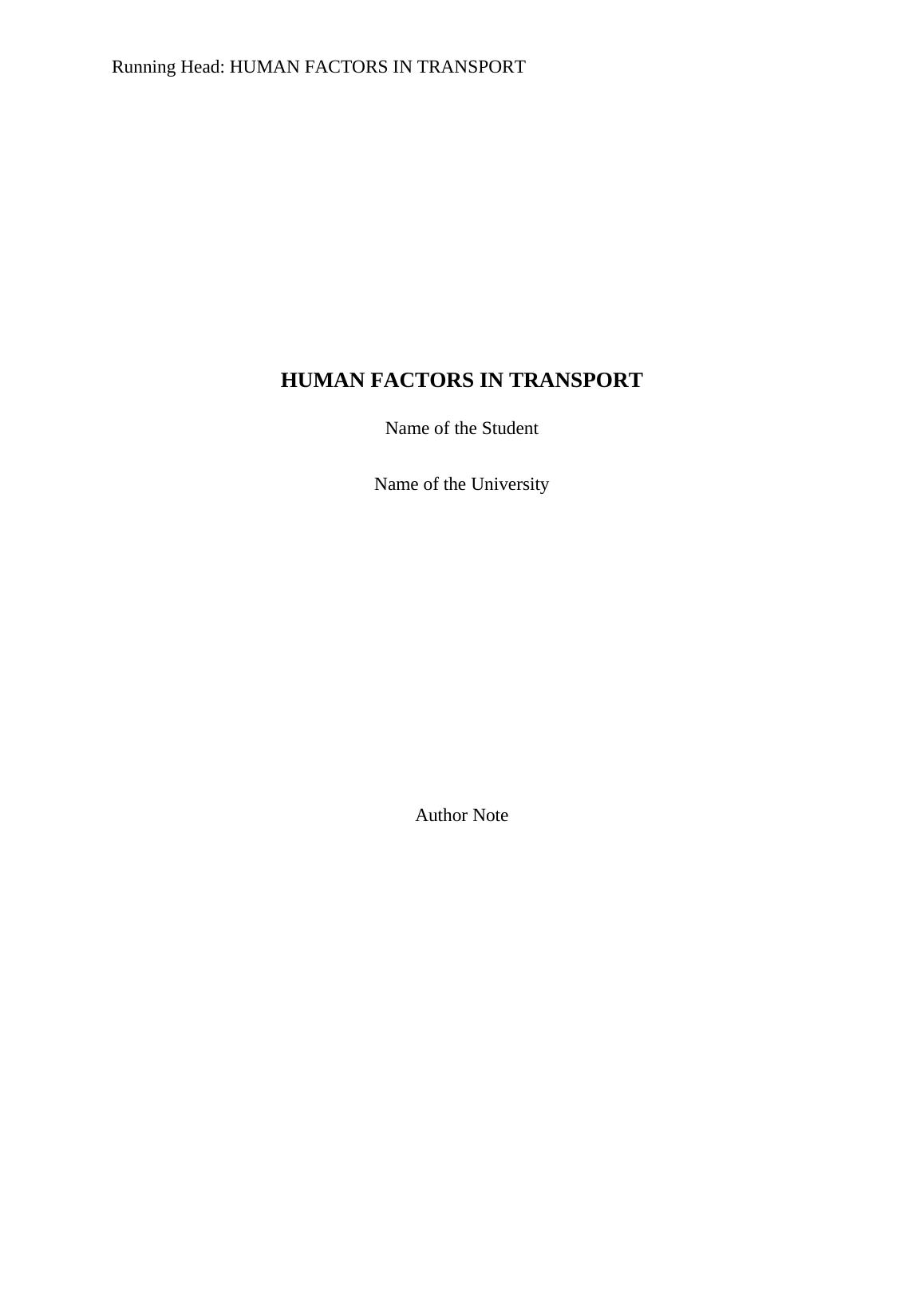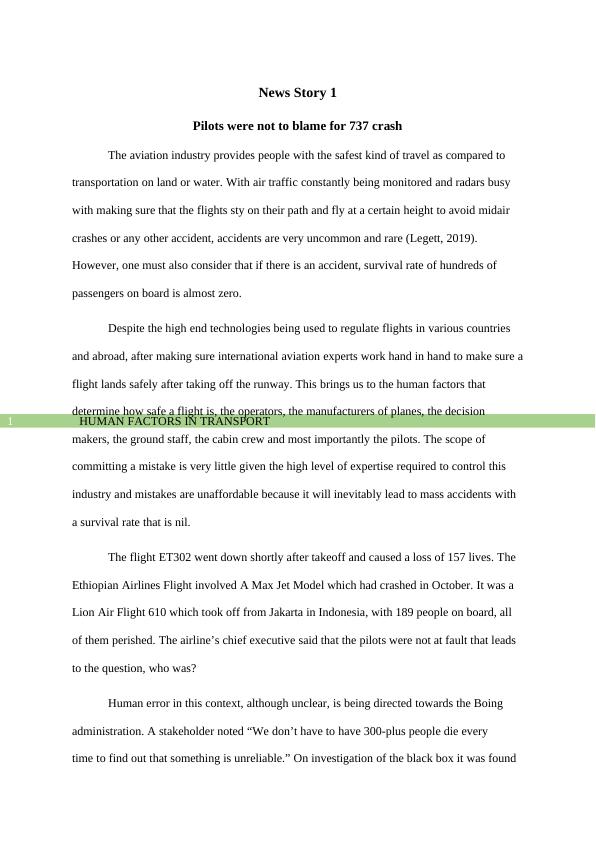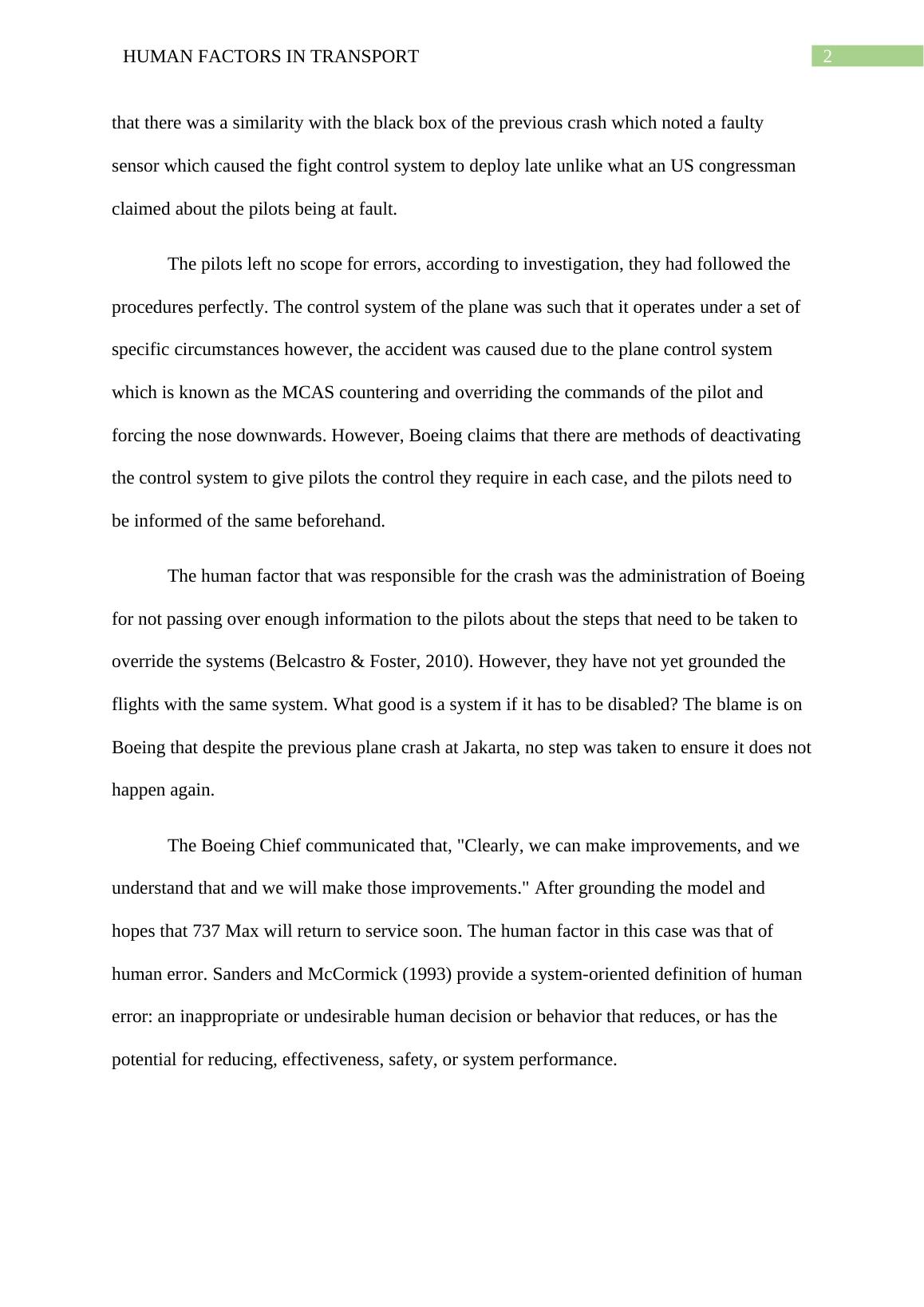Human Factors in Transport
Introduction to the discipline of Human Factors in transportation safety, including its importance, objectives, related disciplines, and historical background.
8 Pages2243 Words52 Views
Added on 2022-12-19
About This Document
This document discusses the role of human factors in transportation accidents, focusing on three news stories. The first story highlights the importance of pilot training and the responsibility of aircraft manufacturers. The second story emphasizes the significance of communication in preventing accidents on waterways. The third story showcases the consequences of drunk driving and the need for responsible behavior. The document emphasizes the importance of training, experience, and adherence to safety regulations in the transportation industry.
Human Factors in Transport
Introduction to the discipline of Human Factors in transportation safety, including its importance, objectives, related disciplines, and historical background.
Added on 2022-12-19
ShareRelated Documents
End of preview
Want to access all the pages? Upload your documents or become a member.
Human Factors in Aviation
|11
|2860
|34
Boeing's Unethical Practices - PDF
|11
|2785
|112
H400 - Advanced Aerodynamics - Assignment
|8
|1750
|121
Recent Boeing 737 MAX Aircraft Accidents
|8
|607
|50
Human Factors in Aviation Incidents: Analysis and Assessment
|8
|1411
|66
Air Carriers | Document
|4
|380
|46



